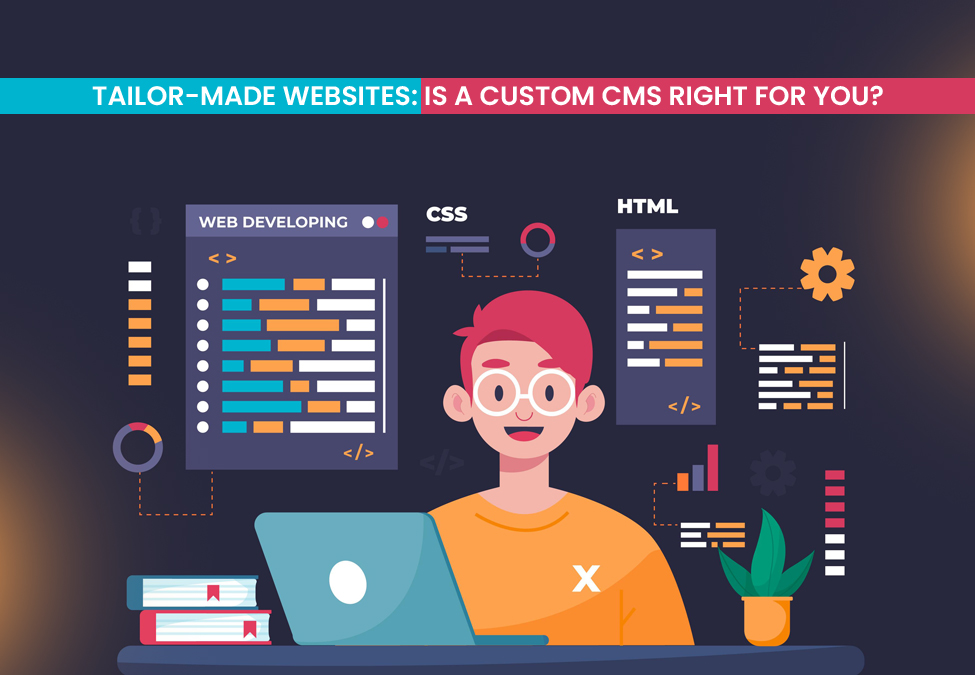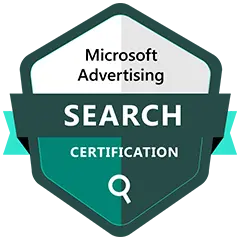When you want full ownership and control over your website.
Yes, because custom CMS is designed to provide more flexibility to website developers.
Creating a website ensures your online presence, but how much control you want over it is decided by the tool you use to develop it. Sitecore and Umbraco are popular custom CMS platforms. However, many other platforms are available in the market. Which platform would be the best for building your website depends on your specific business needs.
There are many benefits to using a custom CMS besides time and money. It is for you if you are ready to spend more and not in a hurry to launch your website. In this blog, we have explained in great detail when to consider a custom CMS for your website.
What Is Custom CMS?
CMS software allows you to develop a website and manage its content. When the software is specifically designed to offer more flexibility to website builders, it is called a custom CMS because you can customize a website however you want.
It offers flexibility, scalability, and control over the website’s functionality. The tool gives you complete ownership of the code, design, and features. You don’t have to rely on third-party plugins and templates to shape your website the way you desire.
However, businesses often get confused about whether they need a custom or an open-source CMS. Open-source CMS is pre-built and ready-to-use software like WordPress and Drupal.
Understanding this difference will help you make informed decisions about a platform and ensure an effective online presence with a robust website.
Custom CMS Key Features
Here are the key features of Custom CMS. Check whether they match your requirements.
- Tailored functionality
- Full control over design
- Enhanced control over customer experience
- Grow with your business
- Custom security features
- Full access to the source code
When Is a Custom Software Right for Your Website?
Did someone recommend a CMS, or did you read a blog highlighting the benefits of a Custom CMS? Is that how you make your decision? Not quite.
It’s important to evaluate your specific needs and determine for yourself when a Custom CMS is truly the best fit for your website.
Here’s when to consider it.
- When You Need Full Control Over Functionality:
A custom CMS allows you to design your website with precisely tailored features. Unlike standard CMS platforms, which often limit businesses to pre-built features and prevent them from fully customizing the site to their unique needs, a custom CMS is built from the ground up.
While open-source CMS options may require plugins or third-party tools to achieve specific functionality, a custom CMS allows for seamless integration of any desired feature. This ensures that your website perfectly aligns with your business objectives and provides a truly personalized user experience.
Customization allows you to make a website SEO-friendly as well. Here are some SEO strategies to boost business that a custom CMS can support.
- Custom Metadata
- Optimized URL Structure
- Faster Load Times
- When Your Website Requires Scalability and Flexibility:
If you know that your website can grow significantly because of the nature of your business, you will need a flexible and scalable CMS. Off-the-shelf CMS platforms cannot accommodate high traffic and growing content needs as your website expands.
With custom CMS, you can build a website that can easily accommodate a larger database. You can make advanced features in the future as your business grows. You will not have to leave the platform and find one that can quickly adapt to an expanding website.
For example, your eCommerce business has grown from 100 products to 10,000 new products, and now you need to build categories for them. More products can lead to more traffic, so the site needs to be robust.
- When Security is a Top Priority:
Popular CMSs are generally secure but can still lead to vulnerability because most rely on third-party plugins and themes. If you are concerned about the security of your website and its users, Custom CMS is the best option. Many companies deal with sensitive data and personal customer details, so they look for a secure platform to build a website.
Since a custom CMS is tailored to the website’s specific needs, you can enhance the security protocols and ensure tiger control over access. Different threat actors often access sensitive data, and this type of case is increasing in the US. In 2023, the country experienced 3,205 data compromises (Statista).
Security features of Custom CMS:
- Custom encryption protocol
- Tailored authentication
- Advanced security auditing and monitoring
- When You Need Seamless Integration with Other Systems:
Businesses often use various tools to manage their processes, such as ERPs, CRM, and Inventory management tools. If you also use multiple tools, make sure the website allows you to integrate them. With custom CMS, you can make your website capable of the same.
Custom CMS can integrate with different tools. You can control all the tools from one platform without juggling. Pre-built CMS may not offer easy customization and integration options. In this situation, you can end up juggling between these tools and difficult integration processes.
- When You Need a Unique and Tailored User Experience:
To provide a highly personalized user experience, the freedom to customize a website is crucial. It allows you to create unique designs and features tailored to your needs, unlike other CMS platforms that limit you to pre-built themes and features.
Whether you want a highly interactive solution, custom search functionality, or creative designs, custom CMS provides endless possibilities. There is no limitation to meet your audience’s specific needs when a platform provides you full freedom to customize your website.
- When Your Budget and Timeframe Allow for Custom Development:
Since a custom CMS is scalable and flexible, you can easily create a website that accommodates more features and innovative designs. While it provides the freedom to customize, it also requires more time and investment. If you have the budget and time to develop a website, go for a custom CMS rather than an off-the-shelf solution. Developing a website for unique business needs takes time because of the customization of features, designs, and functionalities.
Top 7 Examples of Custom CMS for Website Development
Here are some examples of popular custom CMSs. Learn about their features and determine which one best suits your needs.
1. WordPress:
WordPress is a popular CMS that powers 43% of all websites on the Internet. Several businesses use this platform to build websites for their unique needs. You must be thinking that this is not a custom CMS. Although it provides limited customization options, the tool broadens your customization area as you subscribe to the pro plan. Now, you can uniquely customize your website with advanced customization features.
Custom Features: Advanced Custom Fields (ACF), Front-end display, Addons availability, Performance optimization
2. Drupal:
Drupal is suitable for building simple websites and complex web applications. The platform powers 1.7 million websites (Techjury) on the Internet and offers thousands of free themes and modules so that you can develop a website your way. Drupal is an open-source platform that provides flexibility and scalability for data-heavy or complex site development.
Custom Features: Advanced user and media management, multilingual capabilities, smooth integration with other tools.
3. Joomla:
Joomla supports building websites with greater complexity than WordPress. The platform offers more intuitive features than Drupal. So, you can easily create a website, no matter how complex. The tool also allows easy and quick ways to publish a website. With this software package, you can build, organize, and manage content impeccably.
Custom Features: Allows you to create your own templates, WYSIWYG editor, syndication, and custom fields.
4. Sitecore:
Sitecore is an enterprise-level CMS for building standout experiences. It provides the flexibility to create a solution as unique as your business. It allows the transformation of the content lifecycle with effective AI workflows. You can work more strategically with generative copilots.
Custom Features: Easy integration with marketing automation tools, Complex data handling, and cross-channel content management.
5. Magento:
Magento is a leading CMS for eCommerce websites. This custom CMS tool allows you to customize your online stores to the highest degree. Developers can build tailored shopping experiences, manage inventory impeccably, and smoothly integrate it with other tools.
Custom Features: Custom checkout processes, customizable user interfaces, SEO-Friendly structure.
6. Umbraco:
This tool is a flexible, open-source platform developed on the .net framework. It is a popular choice for businesses that want full control over their website and codebase. It allows you to create unique websites that scale with your business’s growth. With its intuitive editing experiences, developers can open a world of opportunities.
Custom Features: Automated security, bug upgrades, support for .Net technologies
7. Sitefinity:
You can drive business success with a user-friendly, and enterprise-level platform. Building a highly customizable website requires access to advanced features of the platform, and this CMS provides you with all those features. It is also an effective platform for digital marketing and eCommerce websites.
Custom Features: Multi-site management, personalized content delivery, marketing tools, and analytics.
Wrapping Up
Building a website from scratch takes around 6 months, while it takes only 2-10 weeks with a CMS. However, selecting the right CMS is often time-consuming if you don’t know when you need which platform. In the blog, we have simplified the process by explaining when to consider a custom CMS for building your website. If scalability, flexibility, and creativity are your priorities, a custom CMS will provide you with great features.
Although custom CMS can be pricey and extend development time, you can build solutions of your choice. If you want quicker and more cost-effective website development, choose a standard CMS.
So, everything depends on your requirements.










